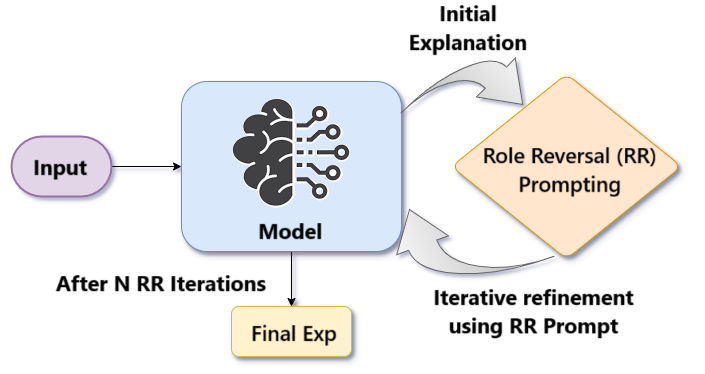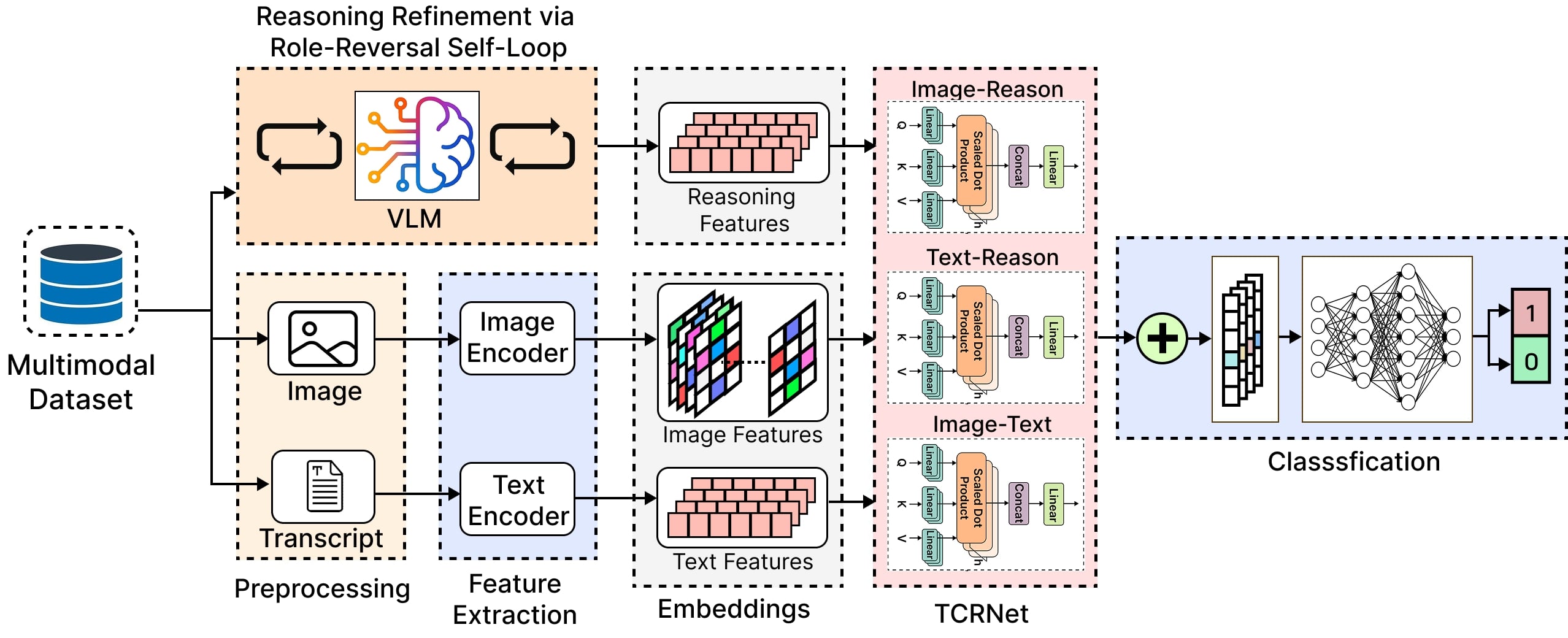Datasets:
D-HUMOR: Dark Humor Understanding via Multimodal Open-ended Reasoning
Accepted at IEEE ICDM 2025 (CORE A* Conference)
This repository contains the dataset for the paper D-HUMOR: Dark Humor Understanding via Multimodal Open-ended Reasoning.
⚠️ Note: The dataset itself is not hosted on Hugging Face. To request access, please fill out the official agreement form (links provided below in the Dataset Access section).
Abstract
Dark humor in online memes poses unique challenges due to its reliance on implicit, sensitive, and culturally contextual cues. To address the lack of resources and methods for detecting dark humor in multimodal content, we introduce a novel dataset of 4,379 Reddit memes annotated for dark humor, target category (gender, mental health, violence, race, disability, and other), and a three-level intensity rating (mild, moderate, severe). Building on this resource, we propose a reasoning-augmented framework that first generates structured explanations for each meme using a Large Vision–Language Model (VLM). Through a Role-Reversal Self-Loop, VLM adopts the author’s perspective to iteratively refine its explanations, ensuring completeness and alignment. We then extract textual features from both the OCR transcript and the self-refined reasoning via a text encoder, while visual features are obtained using a vision transformer. A Tri‐stream Cross‐Reasoning Network (TCRNet) fuses these three streams, text, image, and reasoning, via pairwise attention mechanisms, producing a unified representation for classification. Experimental results demonstrate that our approach outperforms strong baselines across three tasks: dark humor detection, target identification, and intensity prediction. The dataset, annotations, and code will be released to facilitate further research in multimodal humor understanding and content moderation.
Core Contributions
- Novel Dataset: Proposed a new dataset on Dark Humor, collected from Reddit.
- Role-Reversal Self-Loop Refinement: Introduced a prompting technique that makes LLMs think like the author of the post, improving LLM alignment for better explanation generation.
- Tri-stream Cross-Reasoning Network (TCRNet): Developed a reasoning-augmented framework for enhanced understanding and processing of dark humor content.
Supported Tasks in D-HUMOR Dataset
The D-HUMOR dataset includes three subtasks for evaluating dark humor understanding:
- Dark Humor Identification (Yes/No): Binary classification of whether a post contains dark humor.
- Target Identification: 6-class classification of the target being addressed in the post:
- Gender/Sex-Related Topics
- Mental Health
- Disability
- Race/Ethnicity
- Violence/Death
- Other (posts not falling under the above classes)
- Intensity Classification: Humor intensity levels: Mild (1), Moderate (2), Severe (3)
Overall Architecture of the Proposed Work
Role-Reversal Self-Loop Prompting
We proposed a novel Role-Reversal Self-Loop Prompting technique for explanation generation via LLM alignment. The method uses an iterative self-loop where the LLM is prompted to think as the author of the post, enabling better understanding and alignment for generating explanations.
📂 Prompt Template: 🔗 Role-Reversal Self-Loop Prompt Template
Tri-stream Cross-Reasoning Network (TCRNet)
We also proposed a reasoning-augmented framework, Tri-stream Cross-Reasoning Network (TCRNet), which fuses three streams: text, image, and reasoning via pairwise attention mechanisms. This produces a unified representation for classification.
We designed TCRNet (Tri-Stream Cross-Reasoning Network), a multimodal architecture for dark humor understanding that integrates:
- Meme text (BERT encoder)
- Image features (ViT encoder)
- Explanations (SentenceTransformer encoder)
and fuses them via cross-attention for classification across multiple tasks.
Experimental results demonstrate that our approach outperforms strong baselines across three tasks.
📂 Implementation & Details: 🔗 TCRNet – Multimodal Meme Classification
Dataset Access
Due to the sensitive nature of dark humor content, the D-Humor Dataset is shared only under strict conditions:
- Access is strictly for academic and research purposes (non-commercial use only).
- The dataset must not be publicly redistributed or uploaded to third-party platforms.
- Users must ensure ethical handling and confidentiality of the data.
The dataset is derived from publicly available memes on Reddit. By requesting or using this dataset, you agree to:
- Follow Reddit’s content and API policies.
- Respect ethical research guidelines, including non-commercial use and no redistribution.
- Use the dataset responsibly, understanding its sensitive and potentially offensive nature.
Dataset Access Request
Access is granted only after completing the D-Humor Dataset Access Agreement Form. This ensures accountability and proper usage:
📄 Agreement Form (PDF): Download D-Humor Dataset Access Agreement.
📂 Request Form: Fill Dataset Access Request Form
Once approved, you will receive the dataset along with any instructions for use.
Ethical Considerations
- Sensitive Content: Memes include references to death, violence, race, gender, mental health, and disabilities, which may be offensive.
- Research-only Use: Dataset must not be used for entertainment or commercial purposes.
- Contextual Bias: Humor perception is culturally and contextually dependent; annotations may not generalize globally.
- Responsible Use: Users must avoid generating harmful, offensive, or misleading content using this dataset.
Citation
If you find this work useful in your research, or make use of the dataset and methods introduced here, please cite our paper as follows:
@article{kasu2025d,
title = {D-HUMOR: Dark Humor Understanding via Multimodal Open-ended Reasoning},
author = {Kasu, Sai Kartheek Reddy and
Rehman, Mohammad Zia Ur and
Dar, Shahid Shafi and
Junghare, Rishi Bharat and
Namboodiri, Dhanvin Sanjay and
Kumar, Nagendra},
journal = {arXiv preprint arXiv:2509.06771},
year = {2025}
}
- Downloads last month
- 14

